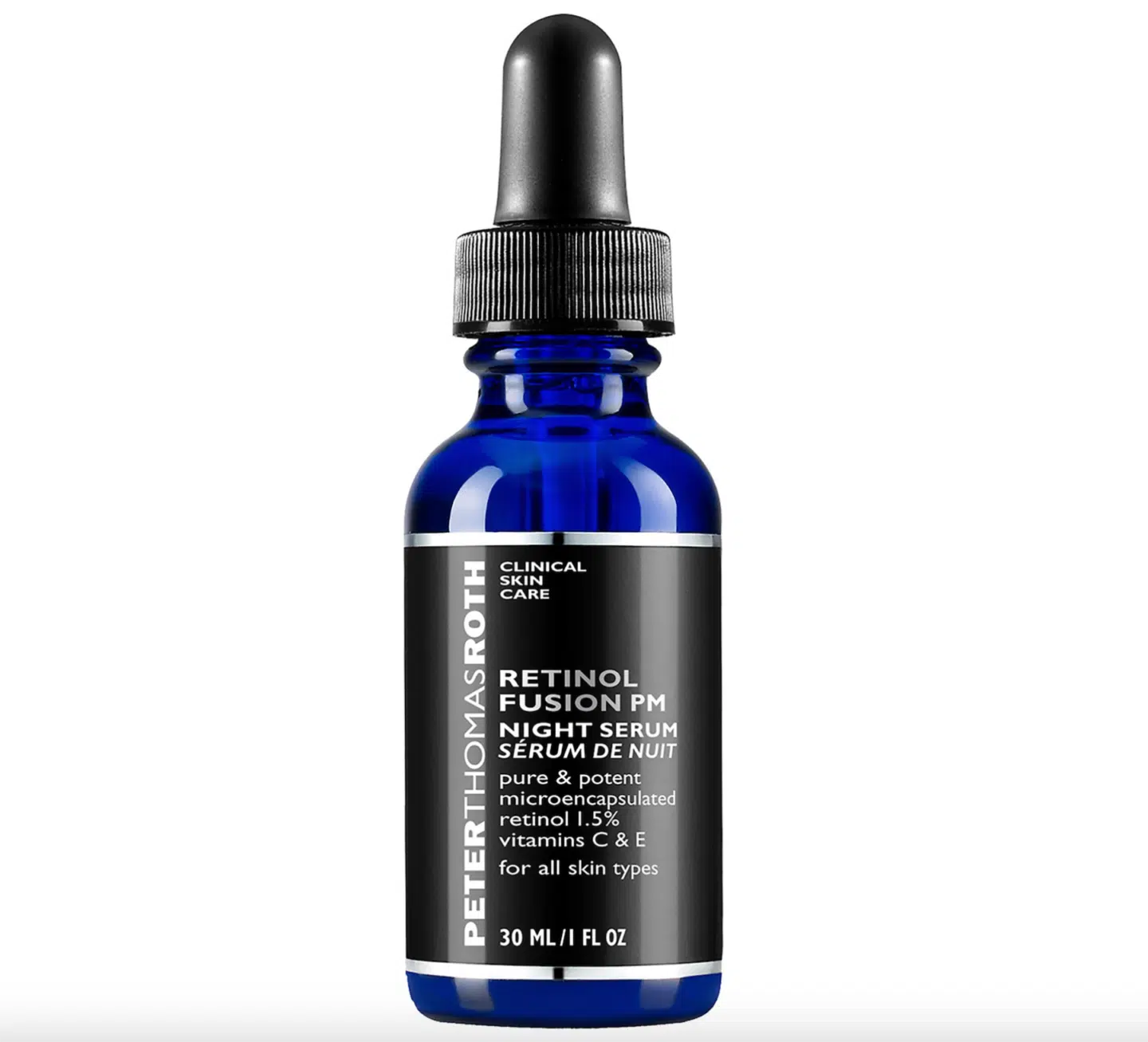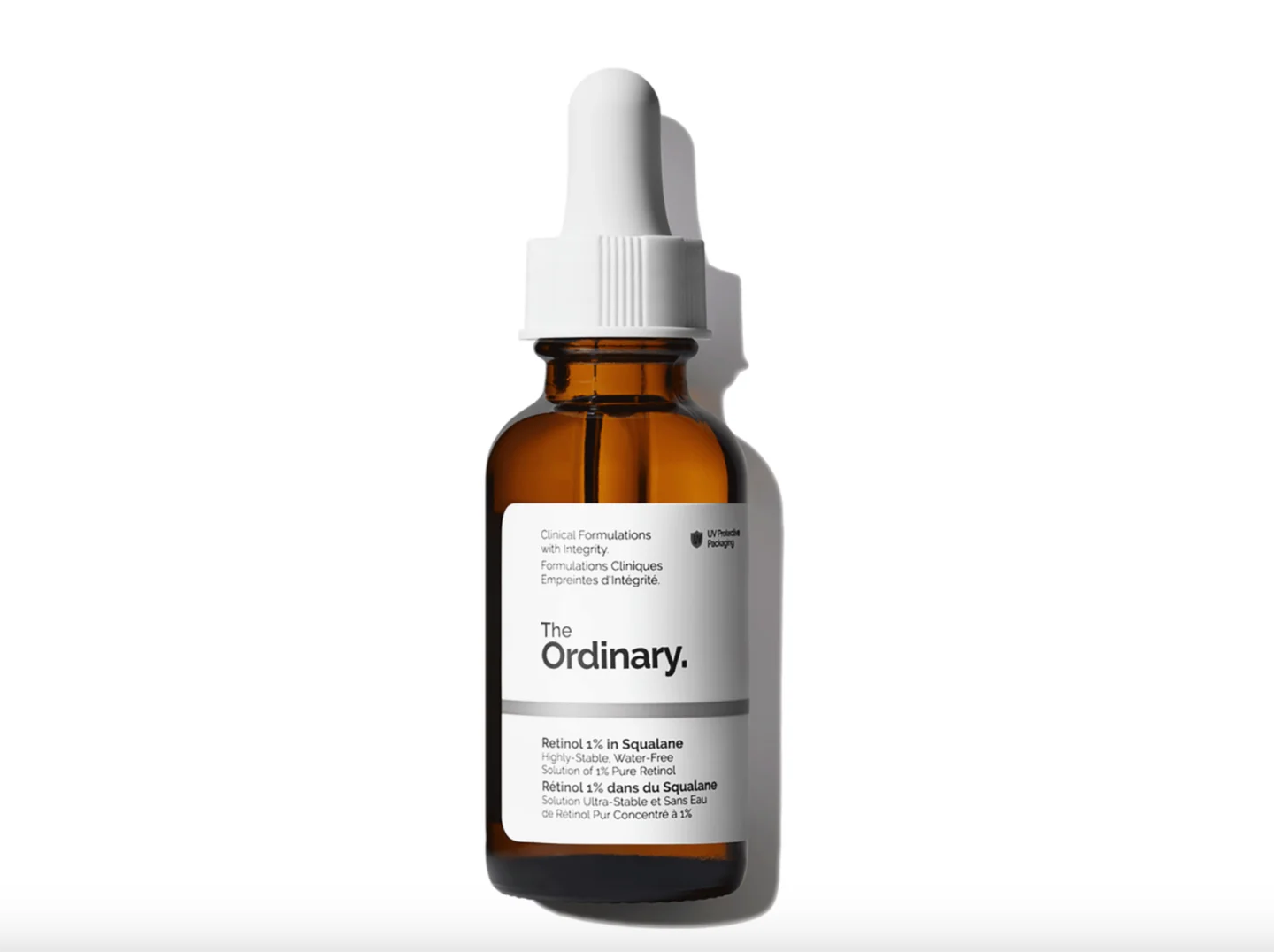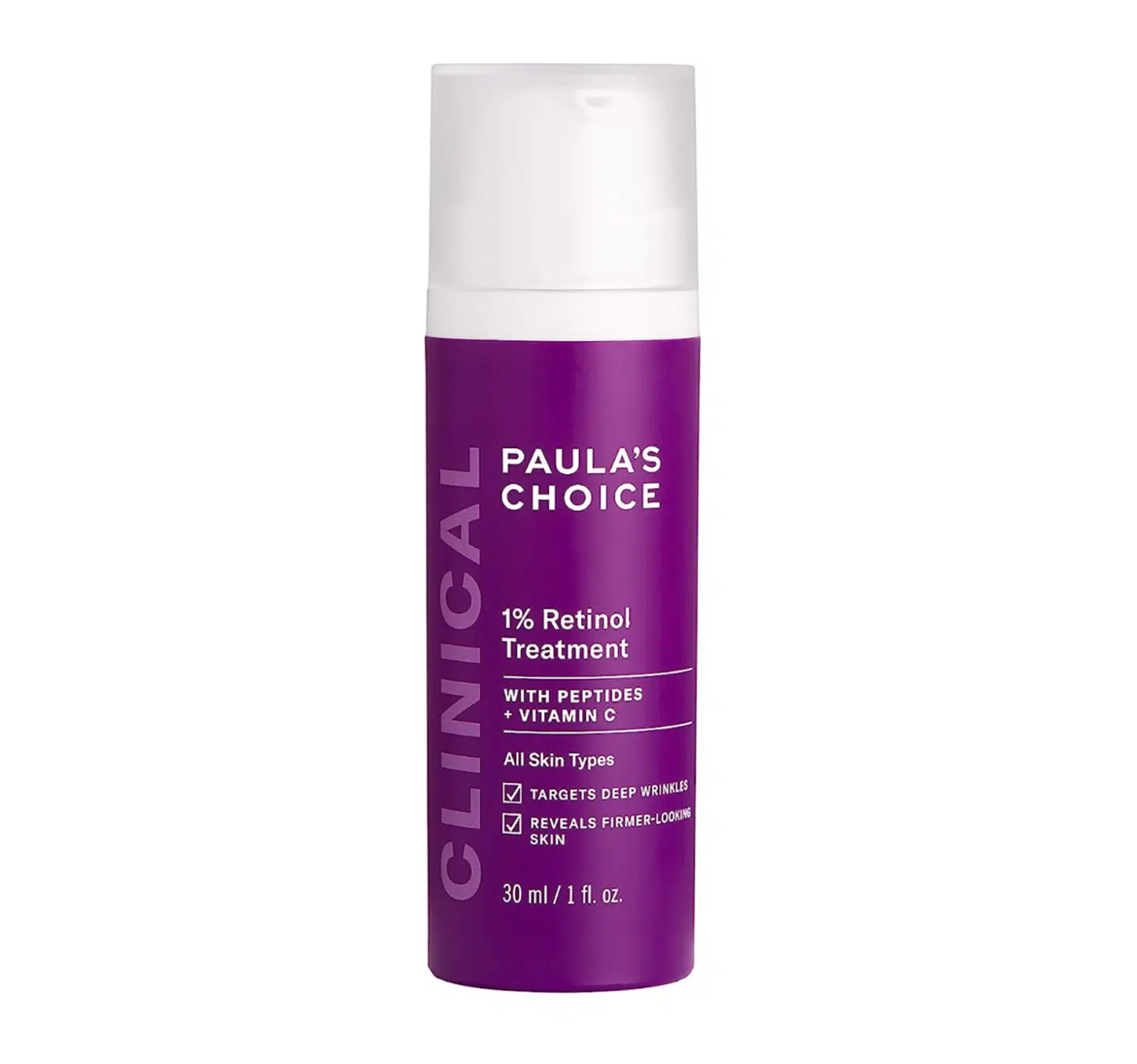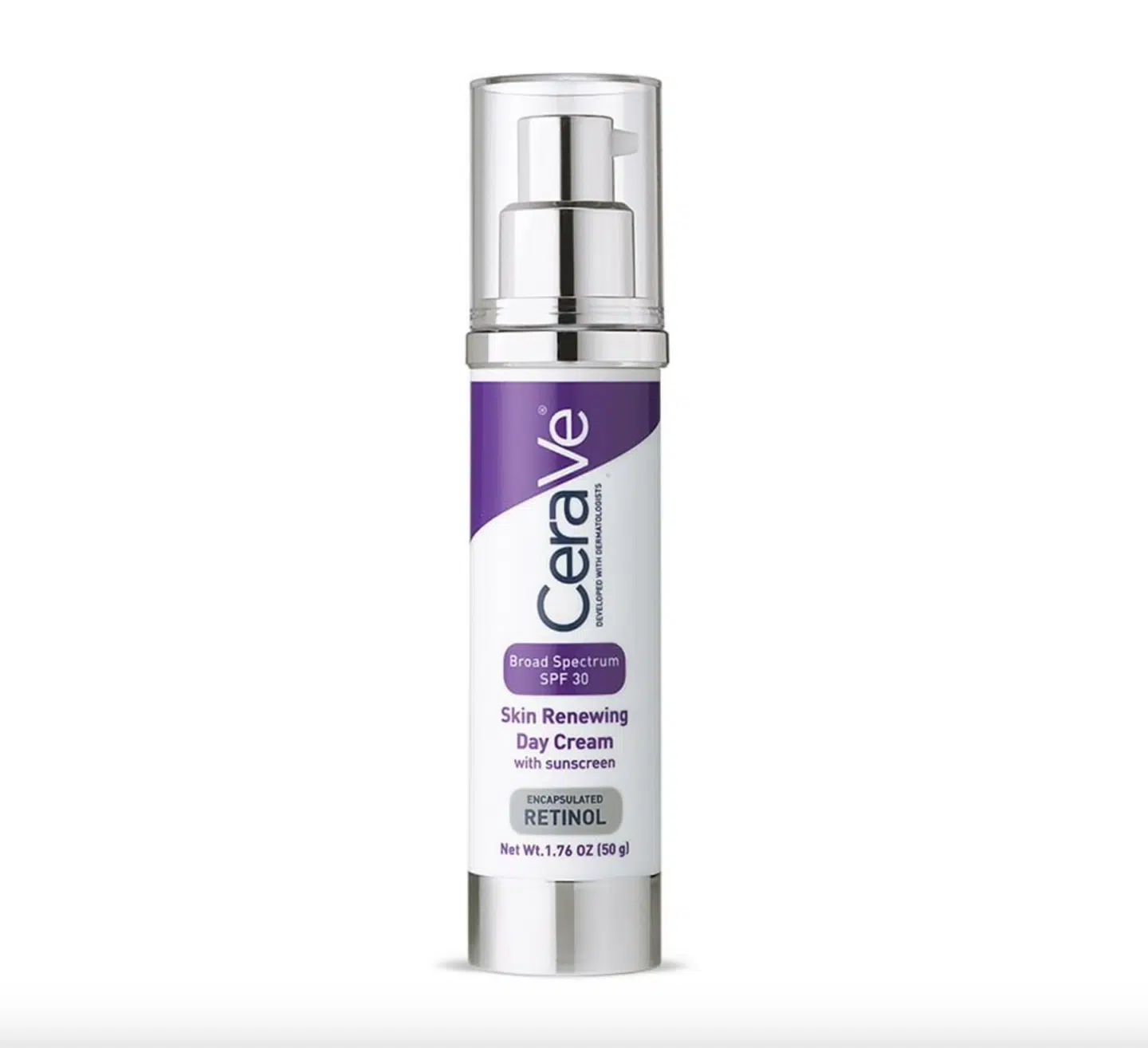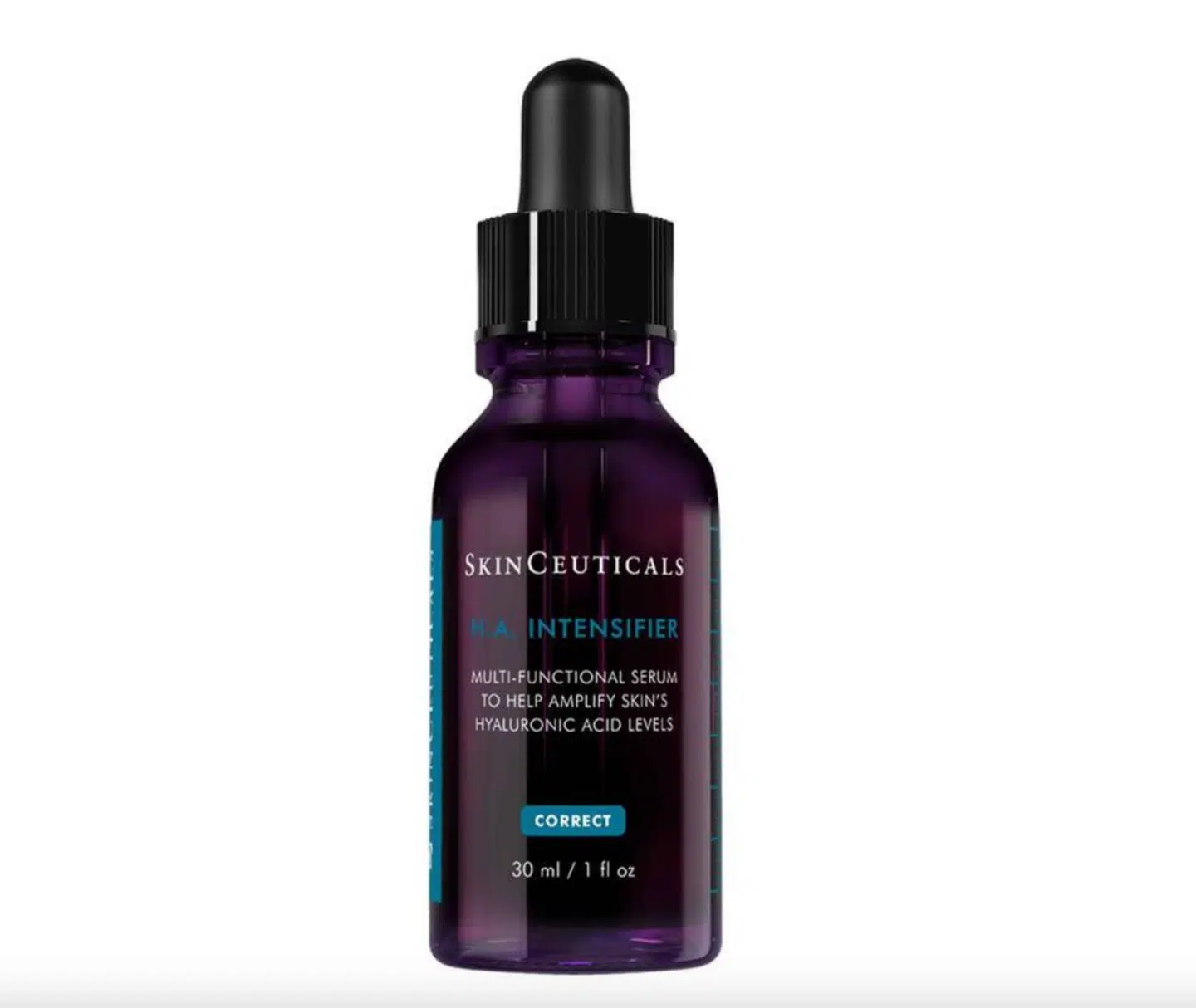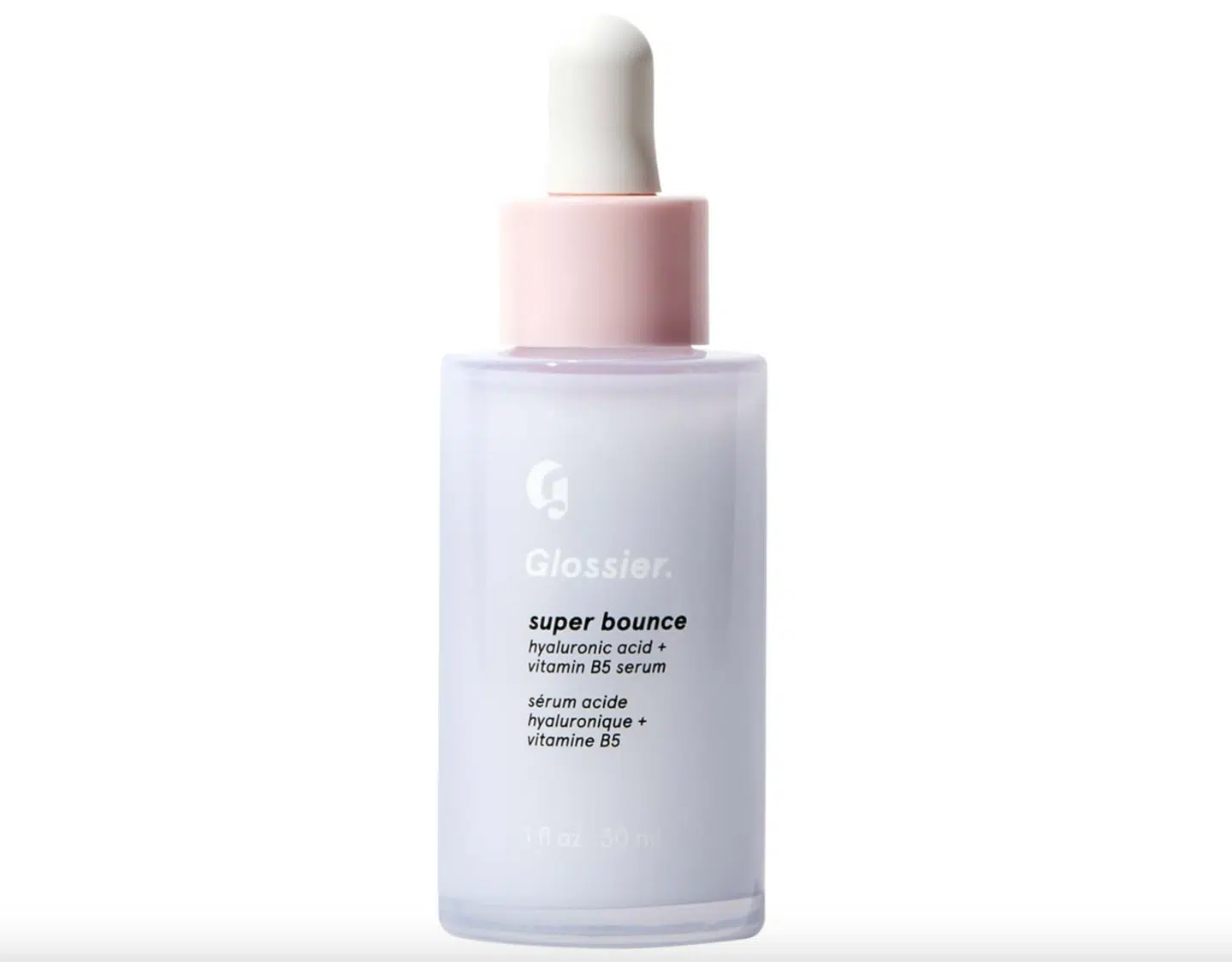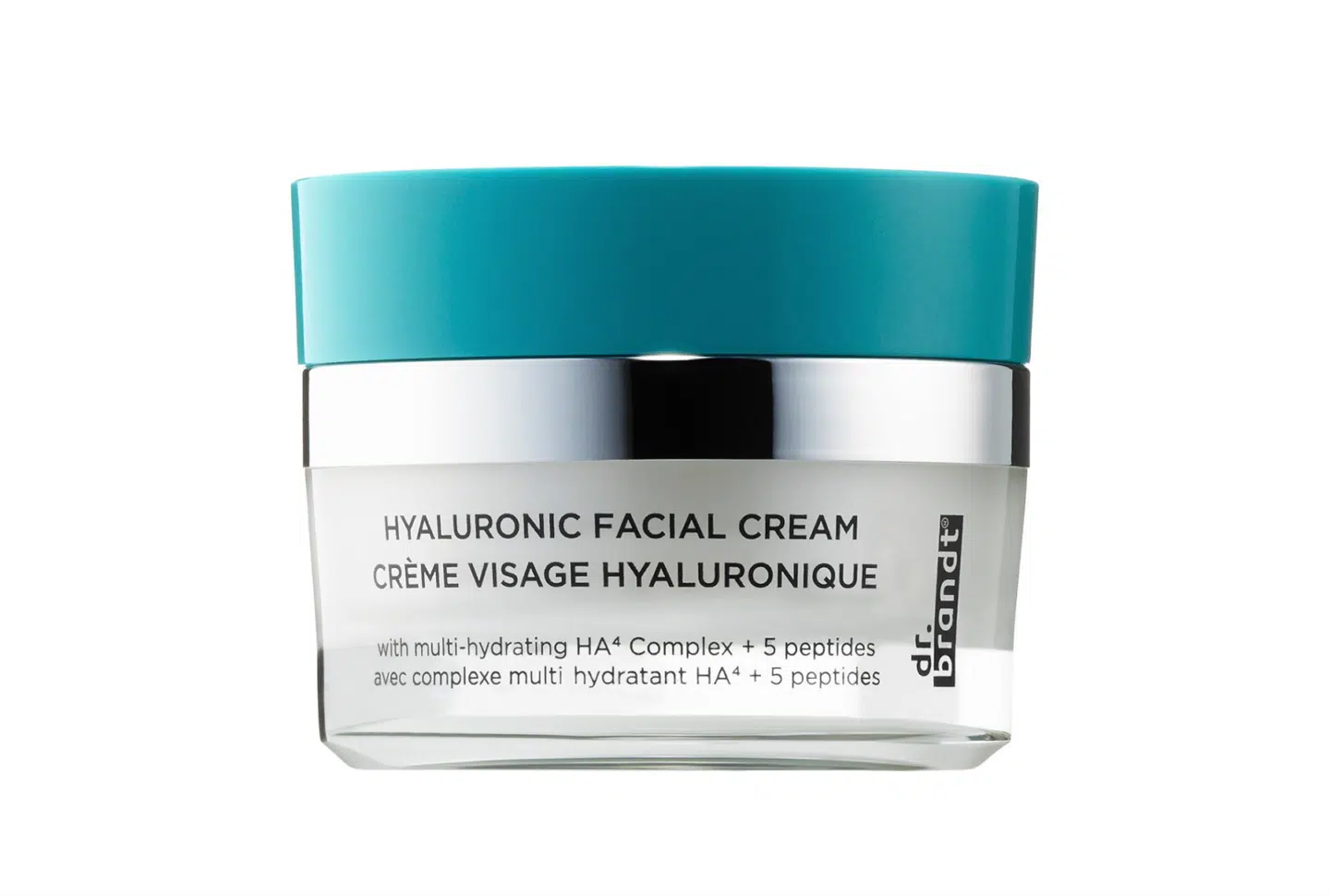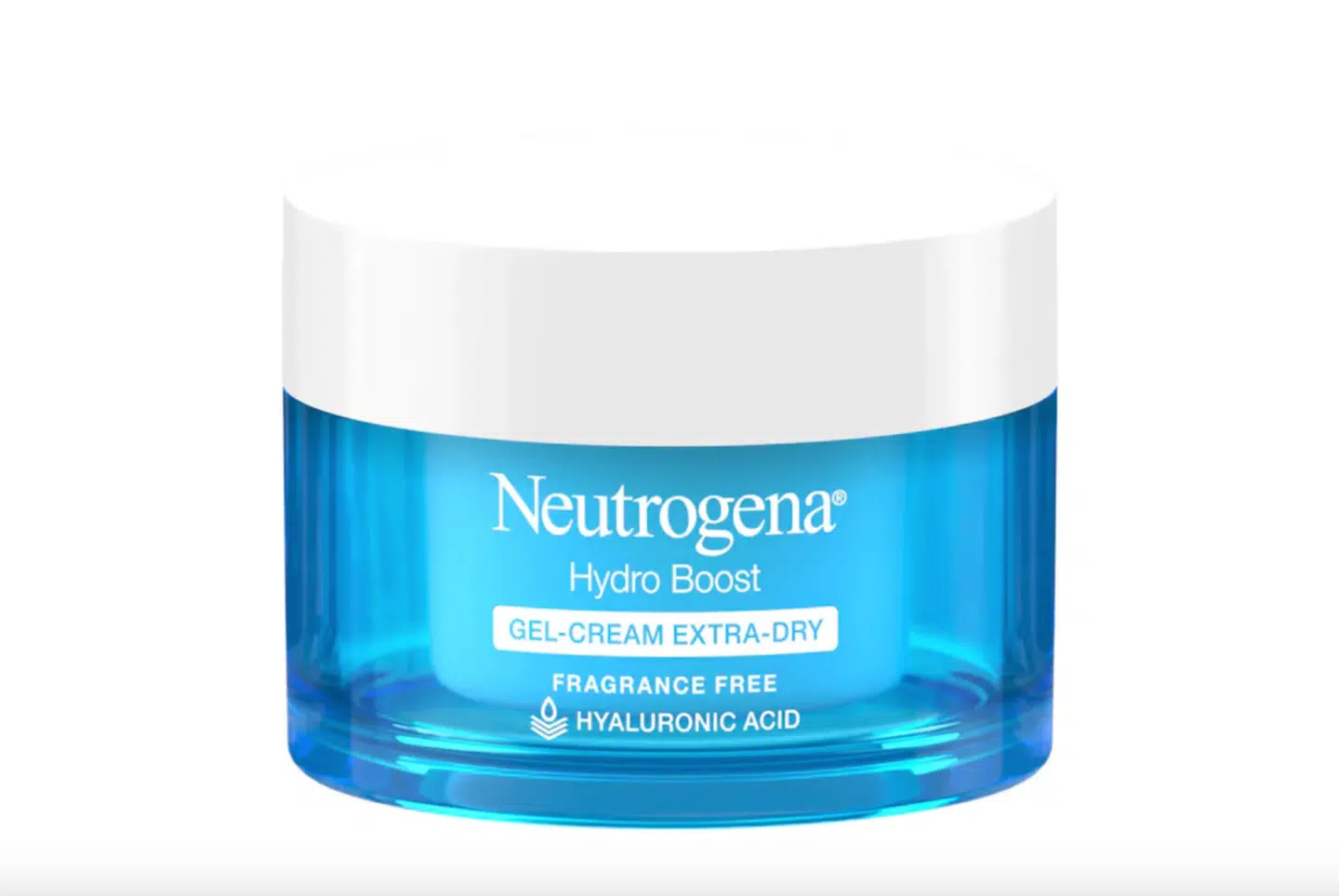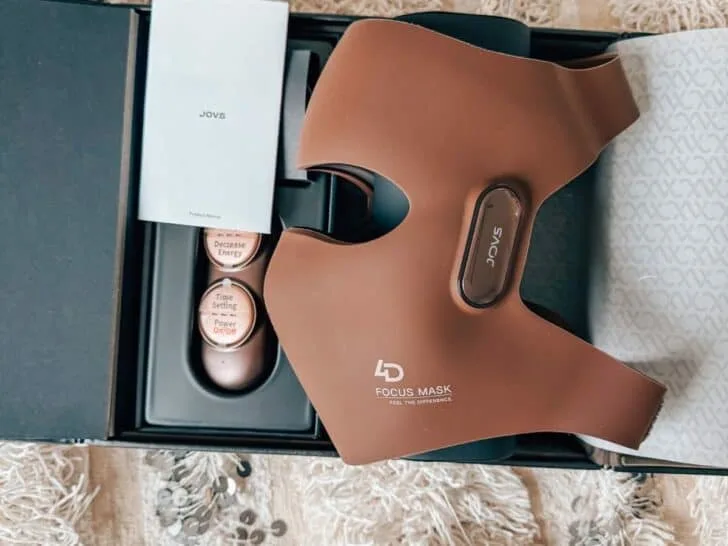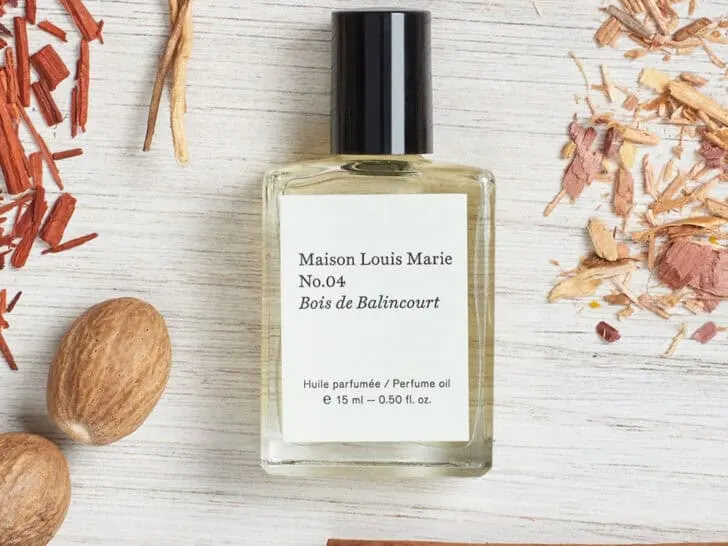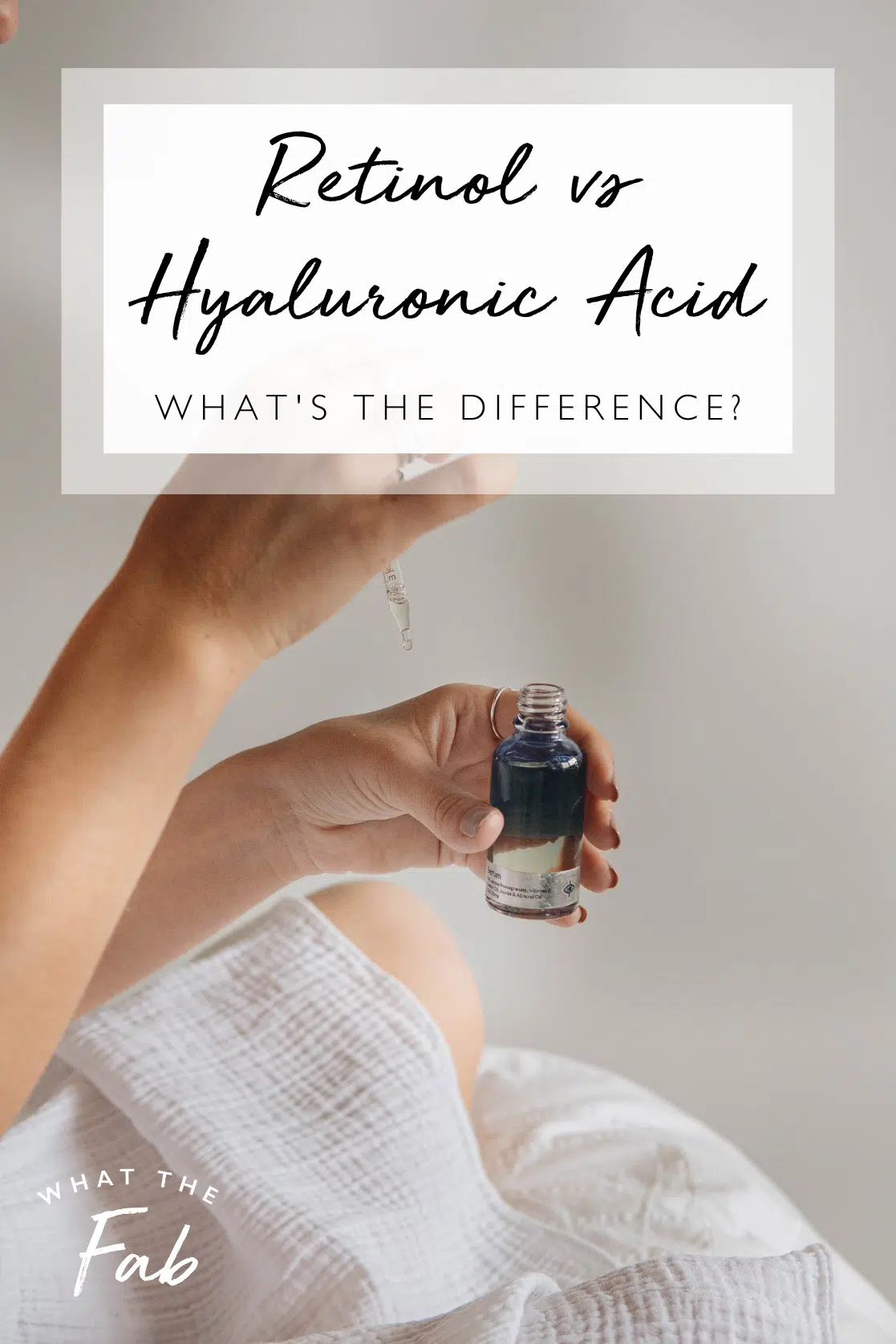
If you’re a lover of beauty or skincare, you’ve probably heard a lot about using retinol vs hyaluronic acid.
Both are well-known anti-aging products, but what’s the difference between them, and how do you know which one to use?
We’ll be tackling all your retinol vs hyaluronic acid questions (they serve very different functions), and I’m also sharing my recommendations on the top retinol and hyaluronic acid products for you to try!
Shop Retinol and Hyaluronic Acid Products Below:
Retinol vs Hyaluronic Acid
What is Retinol?
First, let’s talk about retinol. Retinol is a form of Vitamin A that’s used to treat acne and prevent signs of aging.
Retinol works its magic by increasing skin cell turnover and collagen production as well as unclogging pores and exfoliating the skin.
Through its cleansing and freshening powers, retinol reduces the appearance of skin blemishes and wrinkles to keep your skin looking plump and youthful.
What is Hyaluronic Acid?
Hyaluronic acid is a natural gel-like substance that our bodies produce to lubricate the eyes, joints, and more.
Hyaluronic acid is super important for our bodies because it keeps joints nice and hydrated by binding to water molecules.
When it comes to skincare, hyaluronic acid provides lots of hydration to keep your skin cells flexible which reduces the appearance of scarring and wrinkles. It also locks in moisture, giving you a hydrating and protective skin barrier.
Retinol vs Hyaluronic Acid: Which is Better?
The answer to which is better in the retinol vs hyaluronic acid debate depends entirely on you and what skin concerns you have.
Both retinol and hyaluronic acid work great for mature skin as well as sensitive skin types that might be prone to oiliness or dryness.
Retinol is also proven to help treat acne since it works to unclog and cleanse pores. Hyaluronic acid can be beneficial to acne-prone skin since it provides hydration, but there isn’t much scientific evidence that it specifically treats acne.
Retinol is better if your main concern is preventing signs of aging like wrinkles, hyperpigmentation, and other skin imperfections. If you’re looking for a product to add to your skin care routine for 40s, I would add retinol. On the other hand, hyaluronic acid is the better choice if you want to keep your skin feeling and looking super hydrated.
Can you use Retinol and Hyaluronic Acid together?
If you still aren’t sure which one to try and you want to tackle all of these skincare concerns, you can use both at the same time!
It’s very common and safe to incorporate both retinol and hyaluronic acid into your skincare routine, and a lot of anti-aging serums and creams contain both ingredients.
If you decide to try a retinol or hyaluronic acid skincare product, make sure to introduce it into your skincare routine slowly. This will ensure your skin has time to adjust to the product without becoming irritated.
Especially with retinol, you’ll want to work your way up and may want to start by using it every other night. With hyaluronic acid, you can use it daily from the get-go.
Be sure to wear sunscreen daily when incorporating retinol into your skincare routine as it makes your skin more sensitive to the sun. Although you really should be wearing SPF every day even if you don’t use a retinol product!
Feeling ready to try retinol or hyaluronic acid for yourself? Here are my recommendations on the top retinol and hyaluronic acid products.
Best Retinol Products to Try
Peter Thomas Roth Fusion PM Night Serum
If you want to start using retinol products in your skincare routine, Peter Thomas Roth’s Fusion PM Night Serum is a great option.
The Fusion PM Night Serum is packed with microencapsulated retinol—which releases over time to deeply penetrate the skin—and Vitamins C and E to gently exfoliate and reduce signs of aging.
This nighttime retinol serum is ultra-moisturizing and gentle enough that it works well on all skin types.
A 1oz bottle of the Fusion PM Night Serum retails for $65.
The Ordinary Retinol 1% in Squalane
For a more budget-friendly retinol serum, you can’t go wrong with the Retinol 1% in Squalane from The Ordinary.
This serum combines retinol with squalane—a hydrating, anti-inflammatory oil—to even skin complexion and target wrinkles and fine lines.
All skin types can use this hydrating serum and expect beautiful results.
One of the best parts about The Ordinary’s retinol serum is a 1oz bottle costs just $8.90.
Paula’s Choice Clinical 1% Retinol Solution Treatment
Another great way to incorporate retinol into your skincare routine is with a retinol cream, like Paula’s Choice Clinical 1% Retinol Solution Treatment.
This high-strength retinol cream applies like a lightweight lotion and provides tons of hydration and anti-aging benefits.
The Paula’s Choice retinol cream is perfect for all skin types, and a 1oz bottle costs $62.
CeraVe Skin Renewing Retinol Day Cream with SPF
The CeraVe Skin Renewing Retinol Day Cream with SPF is the perfect daytime retinol cream since it also contains SPF 30 to prevent sun damage.
I love this retinol cream because it keeps your skin looking clean and youthful all day. Plus, sunscreen is a super important step in any anti-aging skincare routine, so this product is the best of both worlds.
You can expect to pay $28 for a 1.7oz bottle.
Best Hyaluronic Acid Products to Try
SkinCeuticals Hyaluronic Acid Intensifier
Moving on to hyaluronic acid, one of the best serums on the market is the SkinCeuticals Hyaluronic Acid Intensifier.
This super-potent serum combines pure hyaluronic acid with natural ingredients like licorice root to increase your skin’s natural levels of hyaluronic acid.
Just a few drops of this serum will provide intense hydration and improve the texture of your skin by smoothing out lines and wrinkles.
This product is a bit of a splurge since a 1oz bottle retails for $110.
Glossier Super Bounce
Glossier’s Super Bounce is a great hyaluronic acid serum with a much lower price tag.
This serum combines hyaluronic acid and Vitamin B5 to soothe and hydrate skin. Hyaluronic acid and Vitamin B5 are a match made in heaven because they work to keep your skin soft and smooth.
As a bonus, the Super Bounce serum is super lightweight and won’t leave your skin feeling sticky, so you can layer it under moisturizers, sunscreen, and makeup.
A 1oz bottle of Super Bounce costs $29.
Dr. Brandt Hyaluronic Acid Face Cream
For ultimate hydration and anti-aging effects, Dr. Brandt’s Hyaluronic Acid Face Cream is the product to beat.
This cream-gel is perfect for all skin types thanks to its lightweight texture that blends flawlessly into the skin to leave you looking refreshed and hydrated. You can use this hyaluronic acid cream day or night and see instant results.
A 1.7oz bottle of this Dr. Brandt face cream is $72.
Neutrogena Hydro Boost Gel-Cream with Hyaluronic Acid
Another great product on the market is the Neutrogena Hydro Boost Gel-Cream with Hyaluronic Acid.
This hyaluronic acid cream provides oil-free hydration that quickly absorbs into the skin without clogging pores.
Neutrogena’s hyaluronic acid cream is great for a variety of skin types, including those with extra dry skin texture.
The best part is you can get 1.7oz of the cream for just $20.
I hope this retinol vs hyaluronic acid guide helps you on your anti-aging skincare journey! Leave me a comment below or on Insta (@wtfab) if you decide to try any of these products.
If you’re interested in more at-home beauty treatments, check out this review of the Hyaluron Pen by Kim!
Find more skincare inspo here.
Some by Mi Review: 5 Products to Try
Best Korean Sunscreens for Oily Skin Types
FAQs
Retinol is a form of Vitamin A that treats acne and has anti-aging effects.
Hyaluronic acid is a hydrating, gel-like substance that our bodies naturally produce.
Retinol is best for targeting signs of aging while hyaluronic acid provides intense hydration. You can also incorporate both into your skincare routine.

Elise Armitage is an entrepreneur and founder of What The Fab, a travel + lifestyle blog based in California. At the beginning of 2019, Elise left her corporate job at Google to chase her dreams: being an entrepreneur and helping women find fabulous in the everyday. Since then, she’s launched her SEO course Six-Figure SEO, where she teaches bloggers how to create a passive revenue stream from their website using SEO. Featured in publications like Forbes, Elle, HerMoney, and Real Simple, Elise is a firm believer that you can be of both substance and style.


